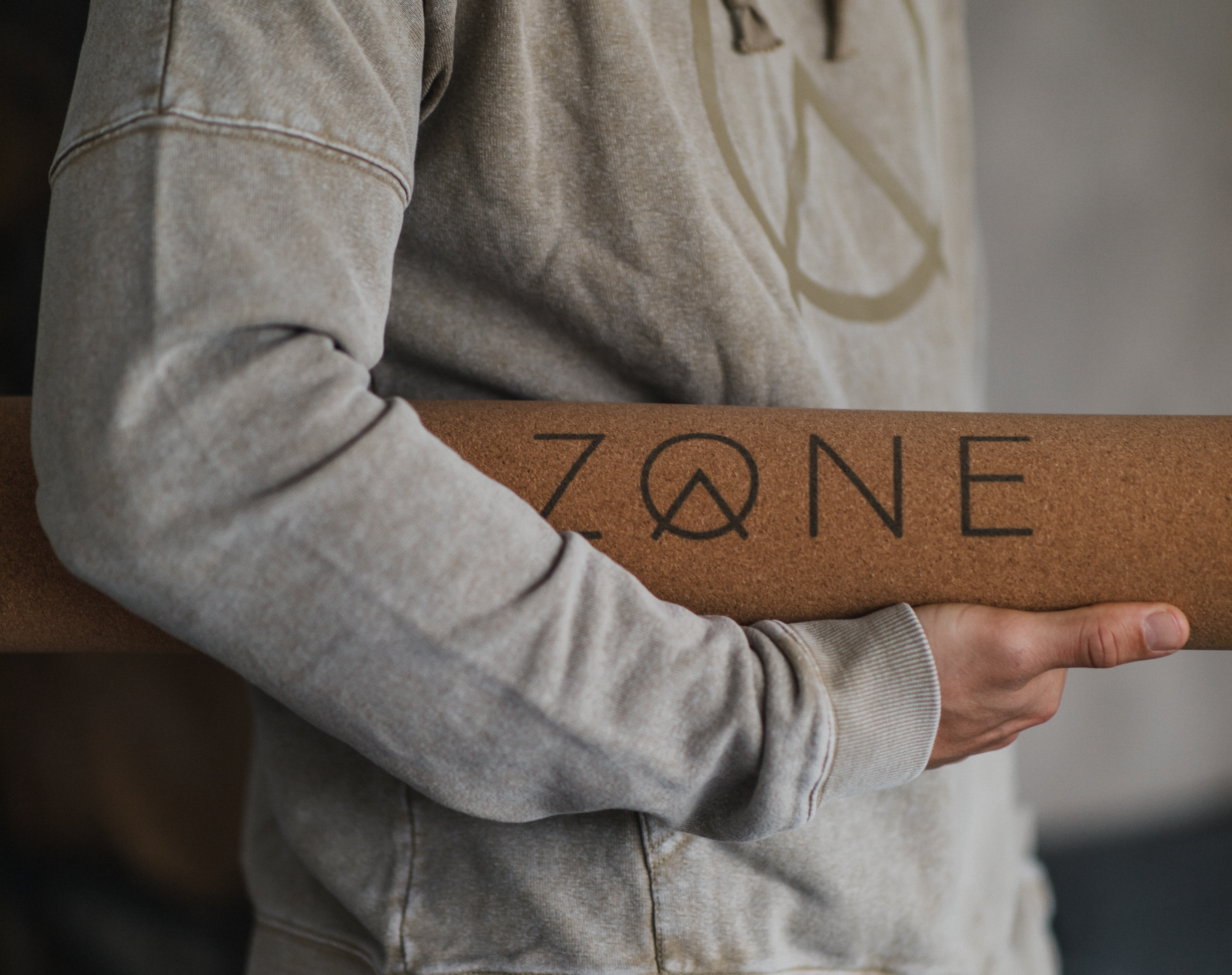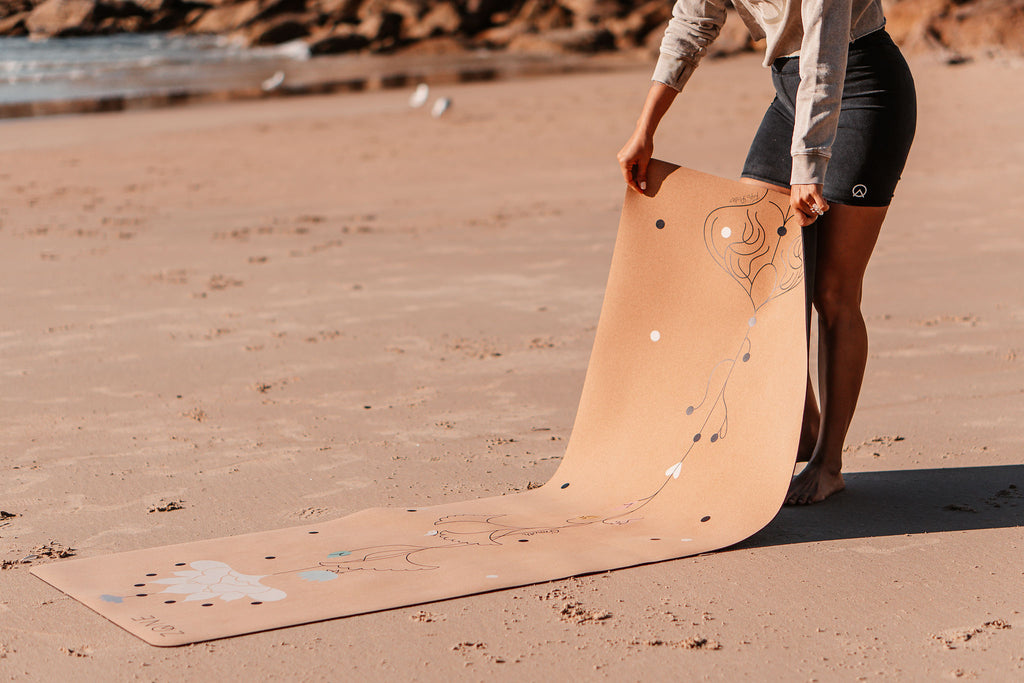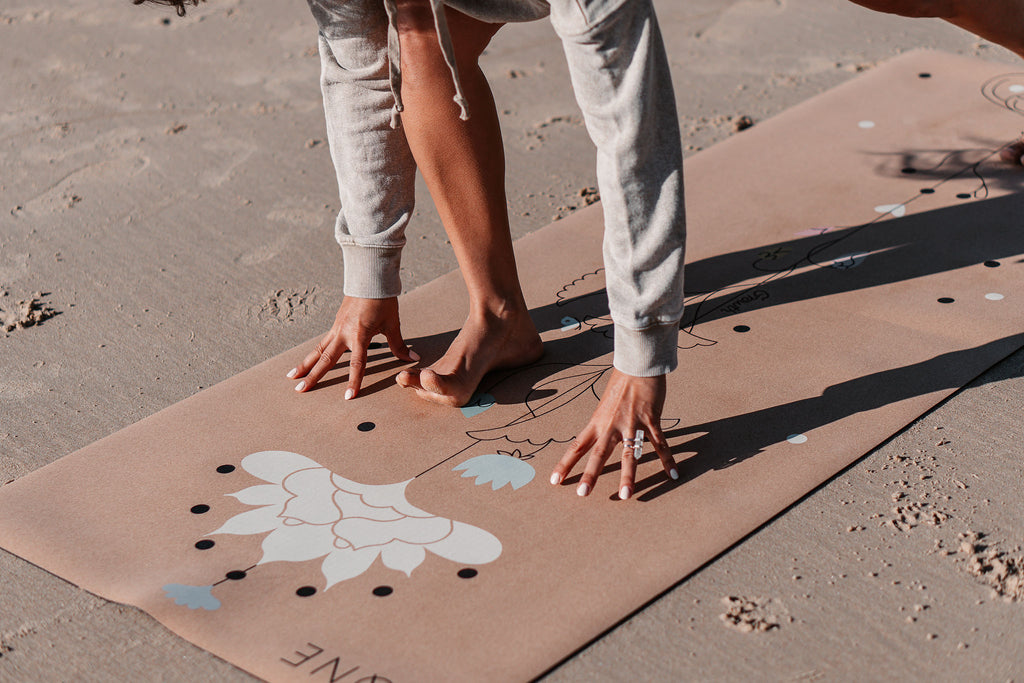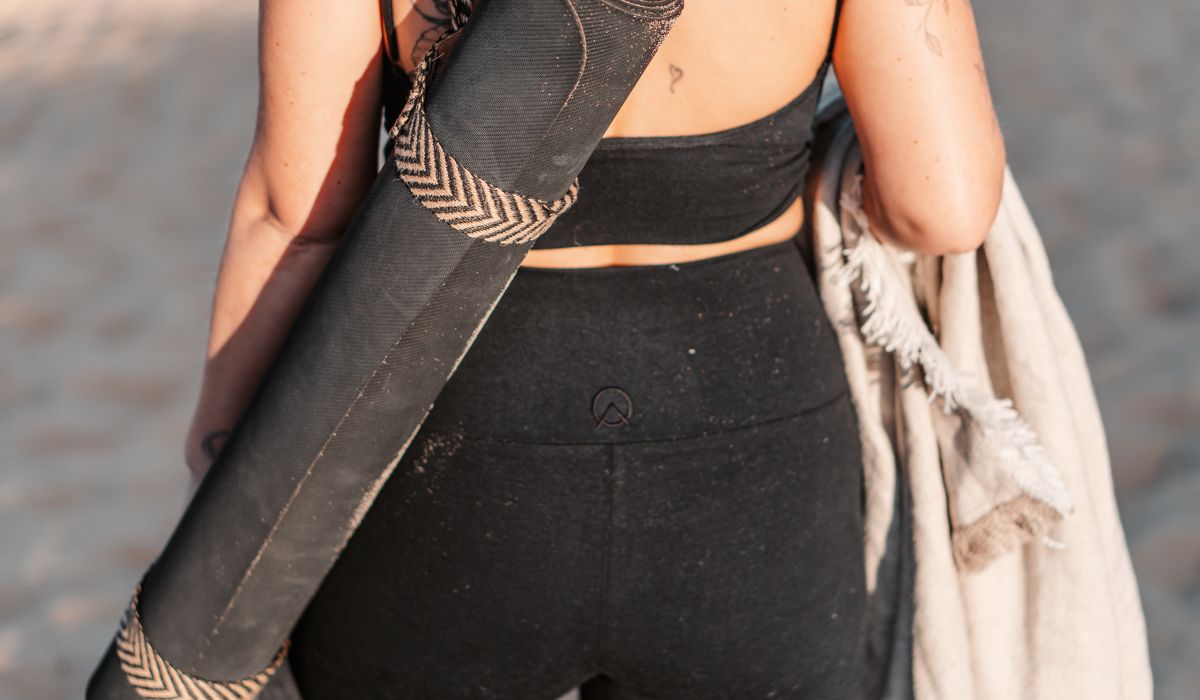Why Use a Yoga Mat?
Regardless of the type of yoga you practice or whether you're a beginner or an experienced yogi, finding your ideal yoga mat, along with accessories like blocks and straps, are essential for a supportive practice. Having the right mat provides a safe space, stability, support, and comfort, enhancing your overall yoga experience. When you own your own mat, whether at home or in a studio, you are ensured good hygiene plus a familiar space where you can fully immerse yourself in your practice. Whether you prefer restorative yoga, dynamic vinyasa flows or challenging Ashtanga sequences, having your own yoga mat allows you to feel comfortable, supported, connected and free from distraction throughout your practice.
Yoga mats can help reduce the risk of injury by assisting yogis to keep a good grip on the surface during poses, preventing slipping and providing extra cushioning for knees or joint sensitivity. Owning your own yoga mat will provide a consistent, clean workout space no matter what style of yoga you are practising.

How to Choose the Right Yoga Mat?
Choosing the right yoga mat is essential for a comfortable and effective practice. Consider factors such as thickness, material, texture, and grip to find the perfect yoga mat for your needs. If you prefer extra cushioning for your joints, opt for a thicker mat, while those who prioritise portability may prefer a thinner option. The majority of yoga mats are made from materials like natural rubber and cork, and TPE which offer excellent grip and durability, while PVC mats are more affordable but contain toxic chemicals and are not eco-friendly.
Texture also plays a role in grip, with smoother surfaces being easier to clean and textured mats providing better traction. Lastly, consider your personal style and environmental values when making your selection, ensuring that your yoga mat aligns with your needs and preferences.
Read more to find out what type of mat is right for you.
Yoga Mat Material
The material of a yoga mat is the most important element to consider when buying a yoga mat as it dictates the mat's texture, comfort, durability and eco-freindliness. The material you choose will also affect the mat's weight, price, and grip. The most common materials you see yoga mats made from are PVC, natural rubber, TPE and cork.
PVC
PVC or Polyvinyl Chloride is a man-made plastic-based material that is durable, easy to clean, but can get slippery when you sweat. If you see a communal yoga mat at your local gym, it is likely made from PVC.
While PVC yoga mats can last many yoga sessions, they are non-biodegradable and are not environmentally friendly and often smell like chemicals. A big no if you're asking us!
Rubber
Natural rubber yoga mats are a non-toxic and durable material and are also a biodegradable alternative to PVC yoga mats. Rubber mats are heavier than other non-rubber yoga mats and often have a harder surface, which means that they do not provide as much comfort for sensitive knees. Natural rubber is a great natural material for a non-slip mat but its excellent grip can be a bit too sticky for poses like forward splits, or jump throughs where you need to be able to slide your feet through. Rubber yoga mats tend to become more slippery with sweat and are not ideal for hot yoga classes.
TPE
TPE or Thermoplastic Elastomer yoga mats are a man-made blend of plastic and rubber polymers. TPE yoga mats are not biodegradable but they are more lightweight and softer than natural rubber mats. This material is usually less durable than other yoga mats made out of cork or PVC.
Cork
Cork is the most sustainable material that you could choose for your yoga mat as it is a 100% biodegradable material. Cork yoga mats get grippier the more you sweat, they are extremely durable and create the perfect balance of cushion and traction that you need during yoga. Our cork yoga mat is dual sided combining natural rubber and cork and is completely biodegradable. With the option of cork and natural rubber, you have a dual grip option that provides enough cushioning, glide and grip for all kinds of practice.
Cork is also naturally antimicrobial, ensuring that your area stays clean and sanitary as you practice. Cork is the material of choice for yoga mats here at ZONE by Lydia, as it helps ensure that we are cultivating an eco-conscious yoga practice.

Yoga Mat Thickness
The thickness of your yoga mat is the second most important element to consider before your purchase and does depend on the type of yoga you practice. The standard thickness start at around 1/8 inch or 3mm thick, while thicker yoga mats are ¼ inch or 6mm thick.
The thickness of a yoga mat influences how comfortable it is, but there are other elements to consider before you go and buy the thickest yoga mat you can find. While extra-thick yoga mats can help protect your joints, choosing a mat that is too thick can slow your flow and could be too cushiony, causing you to sink into your mat and lose balance.
Thinner yoga mats (less than 3mm) often come in the form of travel yoga mats. While these mats are easy to store and cart between your home and class, they don't provide much comfort, especially if you practice on hard floors.
The best yoga mat thickness falls between 3mm and 4 mm. Mats that are around this level of thickness help you keep in control of your balance while still providing an adequate level of comfort. They are also thin enough to be easily portable.
At ZONE by Lydia, our cork yoga mats fall right in this ideal thickness at 3.5mm thick.
Yoga Mat Texture
Texture is also another element to consider when choosing your type of yoga mat as it influences the overall comfort and grip of the map. The texture will affect the amount of traction that the mat provides during your exercise.
PVC mats are slightly textured feel which provides the stickiness that ensures that you don't slide all over the place and helps you maintain alignment during your practice.
However, if you are looking for a more environmentally friendly option to PVC yoga mats, cork yoga mats are known for their smooth, natural feel and medium grip whilst rubber mats have an ultra sticky grip. Cork yoga mat's grip increases as you sweat due to a substance called suberin, ensuring that your mat is always stable and comfortable. Our cork yoga mats combine the best of both worlds!
Price
Yoga mats come in a wide price range, catering to various budgets and preferences. While basic PVC mats made from synthetic materials can be relatively inexpensive, ranging from $10 to $30, more premium options made from natural materials like rubber, cork, or eco-friendly TPE tend to be pricier, ranging from $50 to $150 or more. The price of a yoga mat often reflects its quality, durability, and sustainability, with higher-priced mats typically offering better grip, cushioning, and longevity which is important for a regular practice. However, there are also affordable options available that provide adequate support and functionality for beginners or occasional practitioners. Ultimately, finding the right balance between price and quality is important when selecting a yoga mat that suits your needs and budget.
Eco-Friendliness
Having an eco-friendly yoga mat is important to most yogis and is especially important to the team here at ZONE by Lydia. Traditional PVC mats and other toxic yoga mats often end up clogging landfills for years to come, and while they are a popular option for many yoga studios, they are not environmentally friendly.
We think the perfect combination for an eco-friendly yoga mat is natural rubber and cork as both are natural materials and are biodegradable. Cork is one of the most sustainable materials available, as cork bark regenerates itself, meaning no trees are harmed in the production of cork yoga mats. Cork can also be recycled without producing and toxic residues.

Conclusion
In conclusion, your choice of yoga mat is a crucial decision that can significantly impact your practice so it's important to make an informed choice. By considering factors such as material, thickness, texture, durability, and sustainability, you can narrow down your options and find a mat that aligns with your needs and preferences. Whether you prioritise grip for sweaty sessions, support for joint comfort, or eco-conscious materials for sustainability, there's a yoga mat out there to suit every practitioner. Investing time and research into choosing the perfect mat will enhance your overall yoga experience and contribute to a more enjoyable and fulfilling practice on and off the mat.
If you are looking for an environmentally friendly, high quality yoga mat and want to remove plastic and toxic materials from your practice, check out our cork yoga mats and yoga accessories today!





